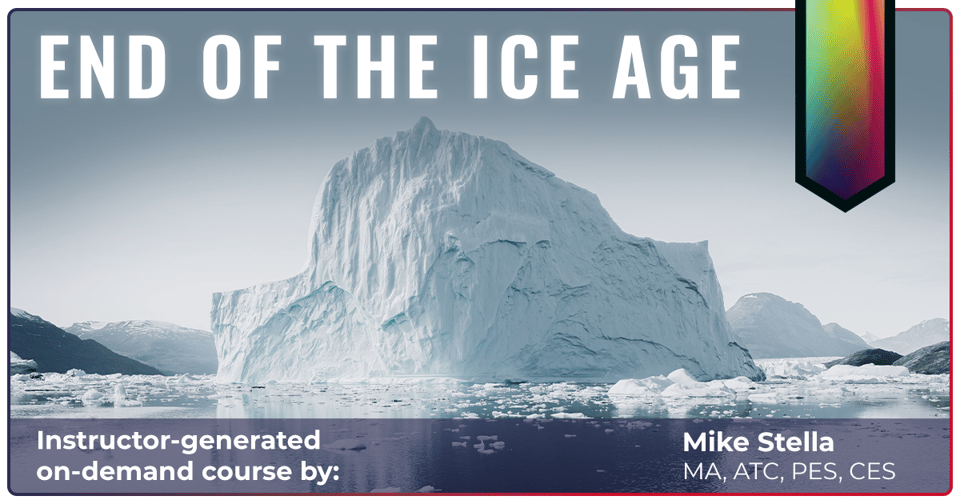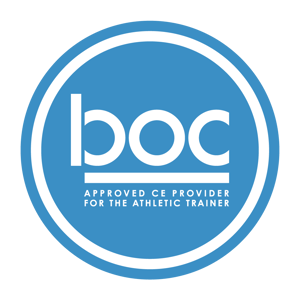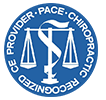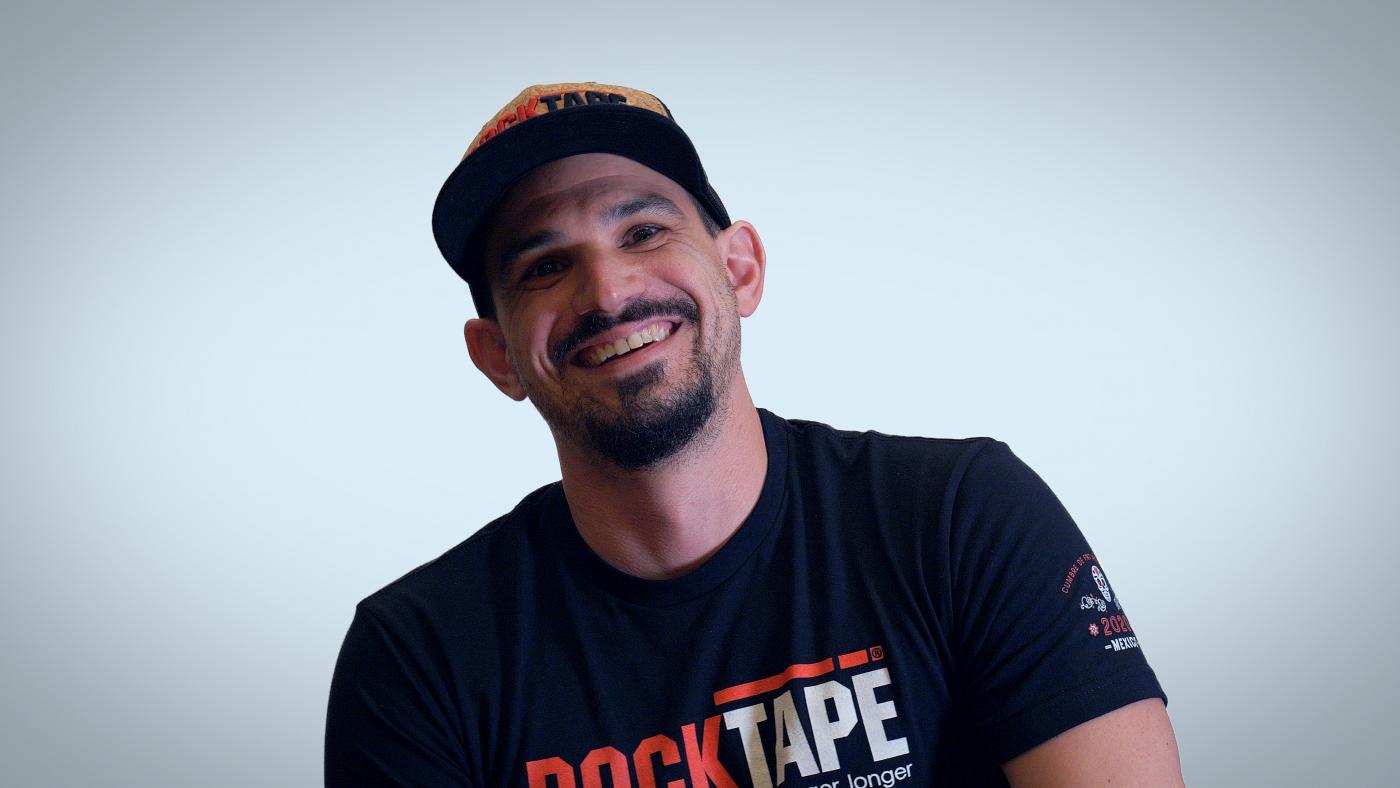End of the Ice Age: A Modern Approach to Acute Care of Traumatic Injuries
by Mike Stella, ATC

Description
Traditionally speaking, acute management of injuries and post-surgical trauma has been relegated to short-term swelling and pain control, and woefully neglects the sub-acute and chronic phases of healing.
Additionally, these classic tactics often have deleterious effects on later stages of healing and perhaps need to be re-considered. This limitation is compounded by the apparent lack of psychosocial factors that influence pain, healing, and both short and long term prognosis. The goal for this course, is to understand fundamental physiological & psychosocial factors and provide evidence informed application of strategies and techniques aimed at optimizing the short term, with the long term in mind.
Available Course Credits
| Alaska State Board of Chiropractic Examiners | 6.00 | ||
| Alaska State PT & OT Board | 5.50 | ||
| Arizona State Board of Physical Therapy | 5.50 | ||
 |
Athletic Trainer Program | 6.00 | |
| Chiropractic Physicians’ Board of Nevada | 6.00 | ||
| Colorado Division of Professions and Occupations | 6.00 | ||
| Colorado State Board of Chiropractic Examiners | 6.00 | ||
| Connecticut Department of Public Health | 6.00 | ||
| Connecticut State Board of Chiropractic Examiners | 6.00 | ||
| Delaware Board of Chiropractic | 6.00 | ||
| Delaware Division of Professional Regulation | 5.50 | ||
| District of Columbia Board of Chiropractic | 6.00 | ||
| Georgia State Professional Licensing | 5.50 | ||
| Hawaii Board of Physical Therapy | 5.50 | ||
| Idaho Division of Occupational and Professional Licenses | 5.50 | ||
| Idaho State Board of Chiropractic Physicians | 6.00 | ||
| Illinois Medical Licensing Board | 6.00 | ||
| Indiana Board of Chiropractic Examiners | 6.00 | ||
| Indiana Physical Therapy Board | 5.50 | ||
| Iowa Board of Chiropractic | 6.00 | ||
| Iowa Board of Physical Therapy and Occupational Therapy | 6.00 | ||
| Kansas State Board of Healing Arts | 6.00 | ||
| Maine Board of Chiropractic Licensure | 6.00 | ||
| Maine Board of Physical Therapy | 6.00 | ||
| Maryland Board of Chiropractic Examiners | 6.00 | ||
| Massachusetts Board of Allied Health Professionals | 6.00 | ||
| Massachusetts Board of Registration of Chiropractors | 6.00 | ||
| Michigan Board of Chiropractic | 6.00 | ||
| Michigan Board of Physical Therapy | 5.50 | ||
 |
Minnesota Board of Chiropractic Examiners | 6.00 | |
| Minnesota Board of Physical Therapy | 6.00 | ||
| Mississippi State Board of Physical Therapy | 5.50 | ||
| Missouri Division of Professional Registration | 5.50 | ||
| Missouri State Board of Chiropractic Examiners | 6.00 | ||
| Montana Board of Chiropractors | 6.00 | ||
| Montana Department of Labor and Industry | 5.50 | ||
| Nebraska Board of Examiners in Chiropractic | 6.00 | ||
| New Hampshire Board of Chiropractic Examiners | 6.00 | ||
| New Jersey State Board of Chiropractic Examiners | 6.00 | ||
| New York State Board of Chiropractic | 6.00 | Expiring on April 30, 2025 | |
| North Carolina Board of Chiropractic Examiners | 6.00 | ||
| North Carolina Board of Physical Therapy Examiners | 5.50 | ||
| North Dakota Board of Physical Therapy | 5.50 | ||
| North Dakota State Board of Chiropractic Examiners | 6.00 | ||
| Ohio State Chiropractic Board | 6.00 | ||
| Oregon Board of Chiropractic Examiners | 6.00 | ||
| Oregon Board of Physical Therapy | 6.00 | ||
| Pennsylvania State Board of Physical Therapy | 5.50 | ||
| Physical Therapy Governing Board New Hampshire | 6.00 | ||
| Rhode Island Board of Examiners in Chiropractic | 6.00 | ||
| South Carolina Board of Chiropractic Examiners | 6.00 | ||
| South Carolina Board of Physical Therapy | 5.50 | ||
| South Dakota Board of Chiropractic Examiners | 6.00 | ||
 |
South Dakota Board of Medical and Osteopathic Examiners | 6.00 | |
| State of Alabama Board of Physical Therapy | 6.00 | ||
| State of Rhode Island Department of Health | 5.50 | ||
| Tennessee Board of Physical Therapy | 5.50 | ||
| Utah Chiropractic Physicians Licensing Board | 6.00 | ||
| Utah Physical Therapy Licensing Board | 6.00 | ||
| Vermont Board of Chiropractic | 6.00 | ||
| Virginia Board of Medicine | 6.00 | ||
| Virginia Board of Physical Therapy | 5.50 | ||
| Washington Chiropractic Quality Assurance Commission | 6.00 | ||
| Washington State Board of Physical Therapy | 6.00 | ||
| Wyoming Board of Physical Therapy | 6.00 | ||
| Wyoming State Board of Chiropractic Examiners | 6.00 |
Learning Objectives
- Discuss, in-depth, the physiology of the healing process as it relates to early stage intervention strategies that are commonly used by clinicians.
- Discuss, in-depth, the neuroscience of trauma as it relates to early recognition, pain, and biophysical responses.
- Evaluate the current body of evidence as it relates to common acute care methods.
- Identify common flaws in the traditional methodology of the RICE acronym for acute management of trauma, injuries, and post-operative patients.
- Describe the variables that affect different body systems during acute phase of healing including the neurological, lymphatic, cardiovascular, immune, and musculoskeletal systems.
- Identify opportunities for more optimal interventions on key body systems during the early phases of healing and recovery.
- Understand the current trends in modern pain science.
- Identify and discuss the psychosocial aspects of pain and healing.
- Develop a therapeutic alliance with patient by improved communication and patient resources designed to ease injury anxiety and optimize habits that can impact the healing process
- Understand and implement the MINDFUL acronym, and how it may be a more well rounded strategic guide to acute management of trauma, as well as subacute and chronic phases of healing.
- Develop evidence informed, manually based, interventional strategies centered around pain relief, swelling mitigation, nutritional & lifestyle considerations
Course Content
| End of the Ice Age | Module |
- Please email education questions to UK customer service ukcustomerservice@4implus.com
Mike Stella, ATC

Mike Stella is a Certified Athletic Trainer, Corrective Exercise Specialist, and Performance Enhancement Specialist who is dedicated to helping all athletes and people overcome injuries and functional limitations. Mike has rehabilitated and reconditioned athletes from a variety of levels and sports, not only helping them return to competition, but also increasing their resilience to future injury. Mike uses a potent combination of movement assessment, manual therapy techniques, and targeted exercise programming to identify and eliminate the underlying causes of pain, injury, and decreased performance, while educating athletes on best practices in training and recovery. Mike has over a decade of experience working with high level athletes and organizations from MLB, MiLB, NFL, NBA, NHL, MLL, PLL, US Olympians, NCAA, IFBB Pro Bodybuilders, and CrossFit Competitors.
Mike is currently the owner/operator of The Movement Underground, an athletic training business in Farmingdale, NY, designed to serve athletes of all ages and sports in the realm of movement, recovery, and performance. Currently, Mike consults for a number of professional athletes and organizations and also is an Instructor for RockTape, a leading education and product brand.
Mike is a Marist College Graduate with a Bachelor of Science Degree in Sports Medicine and Athletic Training. He also holds a Masters Degree in Sports Management from George Washington University. While at Marist, Stella played Lacrosse helping the Red Foxes earn a MAAC Championship in 2005 and the schools first ever NCAA Tournament Berth.
Hour 1: Introduction lecture
- Why Acute Care matters and the current landscape of management of acute injuries and trauma.
- Complications related to current strategies of injury management using cryotherapy, pharmacological intervention and immobilization practices.
Hour 2: Advanced Physiology of Healing & Challenging RICE
- Learn, In depth, the biochemical, hormonal, and neurological responses to trauma and injury.
- Understand how the body repairs and remodels various types of connective tissue.
- Identify the opportunities presented in the healing process for optimization.
- Understand the impact of traditional acute care interventions and their effect on the healing process.
- Review current trends in evidence as it relates to healing, and interventions like Ice, NSAIDs, and Immobilization.
Hour 3: Lymphatics and Edema
- Review and Understand the anatomy of the lymphatic system and its role in edema control.
- Review current evidence on lymphatic drainage techniques.
- Learn and practice manual techniques that can aid the resolution of swelling by treating the lymphatic system including, Manual Lymphatic Drainage Massage (MLDM), Percussion assisted Lymphatic Drainage, Edema Taping using Kinesiology Tape, and Neuromuscular Electrical Stimulation (NMES) Pumping.
Hour 4: Anxiety, Pain, and the Neuroscience of Trauma
- Review and Understand current trends in Pain Science Education.
- Learn and Understand the role of nocebo, and how proper communication can ease anxiety in a well educated patient.
- Review the BioPsychoSocial model of pain management.
- Learn the role of manual therapy and touch in pain mitigation for acute injury cases.
- Learn how touch can influence tissue healing through fibroblastic activity and review current evidence.
- Review and practice IASTM techniques for pain management and accelerated tissue healing.
- Learn the science and evidence surrounding Photobiomodulation, and how Red Light/NIR Therapy can be used for acute pain and inflammation control.
Hour 5: Nutritional Considerations
- Understand how nutrition plays a role in the healing process.
- Review Macronutrient and Micronutrient requirements and best practice recommendations for the injured patients.
- Learn how to use educational resources, like included infographics, to enhance patient education.
Hour 6: The MINDFUL METHOD
- Learn the MINDFUL Acronym for acute injury management that encompasses the various topics and concepts learned in the course.
- Understand how the MINDFUL METHOD represents a more evidence informed approach to managing acute injury and post surgical trauma.
- Review and Learn how to use and apply the educational resources to properly prepare a patient, and other healthcare providers of the importance of quality early intervention, and the pitfalls in the traditional methods of approach.
DC
This course is valid for continuing education credit through NUHS in the following states, so long as it falls within the scope of practice as outlined by the corresponding state board: AK, CO, CT, DE, DC, ID, IL, IN, IA, KS, ME, MD, MA, MI, MN, MO, MT, NE, NV, NH, NJ, NY, NC, ND, OH, OR, RI, SC, SD, UT, VT, VA, WA, WY (Considered distance learning, please check with your board how many hours you are allowed)
Please note that online continuing education is not recognized in the following states: FL, LA, MS, OK, WI
*NUHS makes no representation either directly or indirectly that the substantive matter being presented is approved or within respective scope of licensing. It remains the attendees’ responsibility to contact the state board(s) from which they seek continuing education credits for purposes of ensuring said board(s) approves both the delivery method and content as they relate to this event.
PT/PTA
End of the Ice Age meets continuing education requirements for these State Physical Therapy Boards: AL, CO, CT, IA, ME, MA, MN, NH, OR, SD, UT, WA, WY
ATC
End of the Ice Age (BOC Approved provider # P8570) is approved by the Board of Certification, Inc. to provide continuing education to Certified Athletic Trainers. This program is eligible for a maximum of (6 hours/CEUs End of The Ice Age Category A). ATs should claim only those hours actually spent in the educational program.